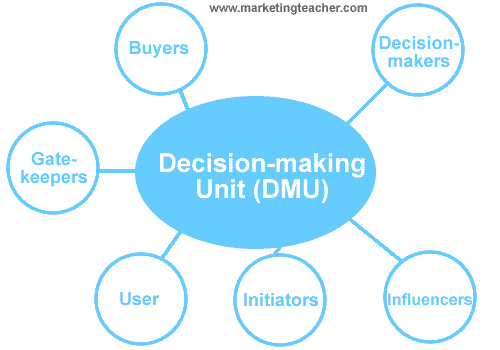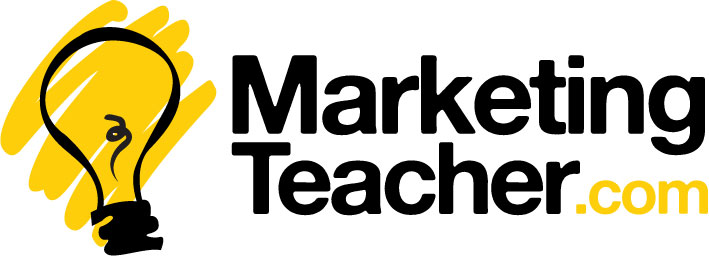Decision Making Unit (DMU)
Individuals who make up the DMU
The decision Making Unit (DMU) is a collection or team of individuals who participate in a buyer decision process. Generally DMU relates to business or organisational buying decisions rather than to those of a family for example. There are a number of key players in this process namely the initiators, the gatekeepers, the buyers, the deciders, the users and the influencers. Let’s consider these individually prior to applying the decision making unit to an example of organisational buying.

Influencers
Influencers are those who may have a persuasive role in relation to the deciders. They may be specialists who make recommendations based upon experience and their knowledge of products and services. Examples are consultants employed by businesses to help deciders make a final decision, or another example might be lawyers employed to offer legal advice. There are also informal influences such as family and friends, and people that you meet at trade associations or informal gatherings.
The relationship amongst the key players will be different for every organisation and in every purchase situation. Individuals may influences as well as initiators, and therefore none of these categories is mutually exclusive i.e. stand alone, since there is much crossover and blurring around the edges of roles.
Initiators
Initiators are the players who recognise that there is a need to be satisfied or a problem to be solved. This might come from a drive for efficiency due to the fact that some equipment will need replacing. There could be many reasons which stimulate the initiation.
Gatekeepers
Gatekeepers are individuals who press the stop/go button in the process. Often gatekeepers will be proactive in searching for information and delivering recommendations for those decision-makers further up the line. On other occasions gatekeepers can be seen stalling the flow of the decision-making process.
Buyers
Buyers are the professional function within an organisation generally responsible for purchasing. They are given a brief with a series of criteria against which to judge potential products or services, and their suppliers. They tend to be responsible for sourcing and negotiation.
Deciders
Deciders in a large organisation certainly are responsible for making the final deal or decision. Their role carries the responsibility of placing the final order. They might be senior managers or agents acting on behalf of an organisation in the market. The deciders will review information provided from lower down the buyer decision process from the buyers, gatekeepers and the original initiators.
Users
Users are those who put the service or product into operation once the deal has been clinched. Their opinions will be important especially if they are using manufacturing equipment, flying aircraft, using software to improve customer satisfaction, and so on. Users will be heavily involved in the post-purchase evaluation phase of the buyer decision process.
